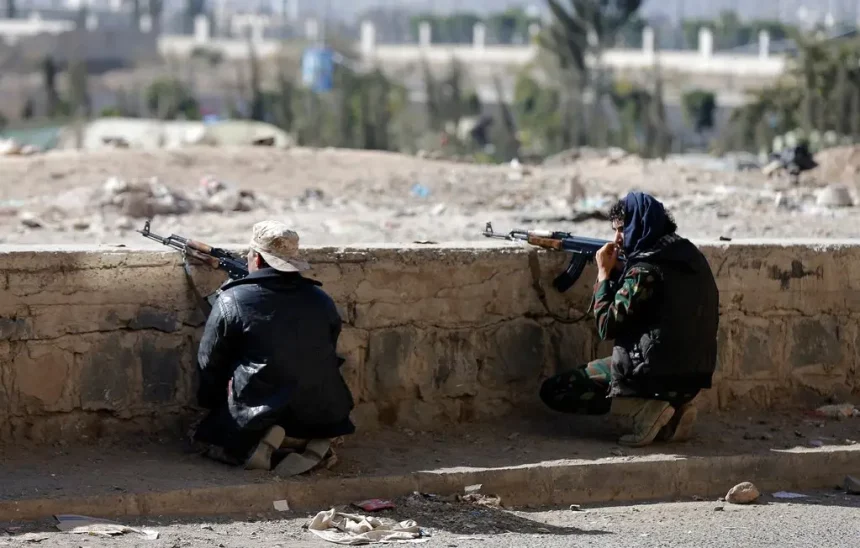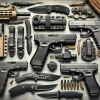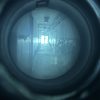I was driving home from the gym. It was late afternoon on 29 September 2002. The sun, hanging low in the sky, was casting long shadows across the roadway. I generally worked-out in the afternoon after leaving my office around 3:00 PM (my workdays began at 7:00 AM). I had been serving as the United Nations Security Advisor for over two years. I heard gunfire in the distance but was unconcerned. Like south Chicago, gunfire in Yemen’s capital city, Sana’a, is relatively common. But as I came closer to my apartment building, the noise level and rapidity of fire both increased. By now I thought I could discern the unique sound signature of fully automatic AK-47 assault rifles.
As I turned one of the final corners near my apartment, I saw what appeared to be muzzle flashes coming from my multi-story apartment building. I had no idea what was happening, but it was clear to me that someone was shooting down into the street. In the distance, I could see what appeared to be a police checkpoint roughly seventy-five yards from my compound. The police saw me coming and tried to stop me. Their waving of arms was almost comical. I refused to stop, gritted my teeth and went barreling through their checkpoint at high speed. The Yemeni cops scattered, as I knew they would. I had to get inside my apartment building. I brought the vehicle to a halt to the sound of screeching tires and tortured brakes.
The staccato gunfire never waned. I only hoped that I would draw little attention. I was still in my work-out garb, long black cotton pants and short-sleeved gray sweatshirt with white running shoes. I grabbed my lightweight rucksack, hurriedly opened the car door, then sprinted for the nearby wall. It provided both cover and concealment from whoever was firing from the building. I looked around to try to take stock of my surroundings. I saw men in Yemeni police uniforms firing up into the building from behind official-looking vehicles. I also observed men dressed in Yemeni tribal garb nearby firing up into the building.
I was on a side street, away from most of the action. The driveway entrance to my building’s parking lot was only a few yards distant. I got low and moved as rapidly as I could under the cover of the compound wall. When I made the driveway entrance, I stopped to look toward the building. There was nobody there. I took a deep breath, swallowed hard, and forced myself to sprint roughly 20 yards to the building entrance. By this time, I had placed the rucksack where it belonged, on my back, although I do not remember doing it. I felt the hand-held radio’s hard edge on my shoulder blade as it bounced about. Someone must have seen me. The sound of fire came from above as rounds hit the pavement to my right and bits of concrete and tar were thrown into the air. Nothing hit me. I made the safety of the entrance in record time, which was surprising, as I am a poor runner. At that point, though, I was so scared I might have given Usain Bolt a race, even considering my advancing years.
Once inside, I took a couple of deep drafts of air. I was sweating profusely. I looked toward the elevator, then at the stairs, and was momentarily stumped. Which means should I take to my floor? The elevator offered an easier ride. But the elevator door would open at my floor on the unknown. The stairs were safer. I was really missing the UN-issued 9mm pistol that I had carried in Sierra Leone in West Africa. Being unarmed in the middle of a gunfight has distinct disadvantages. I felt utterly vulnerable, but I had to keep going.
I started the climb two steps at a time, but then chose to slow my pace. I wanted to arrive on the fifth floor capable of meeting the unknown. That was my intention, but by the time I got there, I was out of breath again. The fact that Sana’a was over a mile high ensured that the air was thin. The combination of age, adrenaline, and altitude worked against me. I took a moment to steady my breathing before launching into the abyss. My mouth was unimaginably dry. My hands were shaking, and my breathing was ragged. I wiped away the sweat from my eyes. I was just above the fourth-floor landing. All was silent; there was a lull in the fighting. I climbed the stairs carefully, while attempting to see over the fifth-floor landing. Straight ahead I noticed the door to the French military attaché’s apartment was ajar. From the appearance, it had been kicked in. Was there anyone still inside? To the left was my place. The door was closed. The door to the right was also closed. That was my destination.
I moved as quietly as I could to the open door first. I had to know if there was anyone there. I gently pushed the door open further to peer inside. It remained quiet. There was nobody immediately visible. The windows had been shot out. The ceiling was pockmarked with bullet strikes, and a chandelier that had occupied the ceiling now rested on the dining room table in shattered remains. I cannot explain why, but I knew, or more correctly felt, that the remainder of the attaché’s apartment was unoccupied. Whoever had kicked down the door had moved on, perhaps looking for a better firing position on a higher floor. Sensing now that, for the moment, there was no danger here, I pivoted rapidly and made my way to the apartment that was my destination.
I knocked on the door and called out her name. The response was muffled but nearly immediate. I heard the interior latches at work, and the door swung inward. Olga stood in front of me holding her baby girl close to her breast. Both were in tears, clearly badly frightened. At my appearance, Olga’s smile shone through. She was clearly very glad to see me. I have no memory of what I said next, probably something intended to be comforting. Unfortunately, the lull in the fighting ended. The bursts of fire were not controlled, but long and ragged. We heard the dull thud of rounds impacting concrete on the front side of the building. We also heard what might have been return fire from a pistol, perhaps from the vicinity of the rooftop. It was impossible to tell for sure.
I took Olga gently by the arm, while directing her to the nearest bathroom, and away from exterior windows. Interior bathrooms can often provide additional insulation against bullets. I placed her and the baby in the bathtub—more insulation—after acquiring a blanket for them from her son’s bedroom. He was fortunately not yet home from school. Once mother and daughter were secured, other tasks took precedence.
First, using my hand-held radio, I sent out a general call to all UN staff members in Sana’a, advising them to avoid the general location of my building until I provided an “all clear.” Second, I called Frank, Olga’s husband, on my cell phone. He worked at the UN High Commissioner for Refugees agency in Sana’a. I told Frank what had occurred and instructed him to stay at work until my next call, which would permit him to come home. I assured him that his wife and child were in good hands and safe. I lied. But it was a lie with a purpose. It kept Frank safe from harm. The fact was that I was not armed and could not have done much if armed men wanted to enter Frank and Olga’s apartment. Third, I called my boss, James, and provided a quick situation report. I was about to call Jamal, my local security assistant, when I heard him calling my name in the hallway. His voice is distinctive. I recognized it immediately.
I opened the door, so he could join me in Olga’s apartment. I was very glad to see him. We re-locked the door and piled some furniture in front of it as well. It wasn’t much, but it might be just enough to stop or delay entry. Anyway, it was the best we could do under the circumstances. Jamal then told me that he had been in his car nearby when he heard the firing. Once he discovered that the source of the automatic weapons fire was my building, he headed straight there, but while on the way, he noticed a fully loaded children’s school bus headed in that direction too. Recognizing the potential danger, he raced ahead of the bus in his vehicle and brought his car to a stop directly in front of the school bus. The bus driver had no choice. He halted. Jamal instructed the bus driver not to enter what had become a free-fire zone. His quick thinking may have saved some young lives that day. I later ensured that he was presented with a letter of commendation for his bravery and quick thinking.
Some minutes later, when the firing let up, I asked Jamal to check the area surrounding the apartment building to ensure that the firefight was indeed over. I remained with Olga and her baby. Jamal returned perhaps fifteen minutes later and confirmed that the fight was done. He also told me that he had seen the bodies of four dead. In conversation with local police authorities, he discovered that several more were wounded and had been taken to the hospital. What happened? As I discovered later that same day, two sons of a powerful sheik parked their vehicles near the British Embassy. The embassy guards asked them to move. An argument ensued. A physical assault occurred. Guns were drawn. Firing began. The battle became mobile, moving down the street and around the corner to my apartment building. This absurd altercation over parking spaces was the genesis of the gunfight. The reason I saw both persons in tribal garb and persons in police uniforms firing into the building was because a man from one tribe will not fire on members of his own tribe, even if they are in police uniform. Instead, he will automatically take up arms against anyone firing on another tribal member.
The following day, sometime in the early evening, I heard a gentle knock at my apartment door. It was Olga standing there holding a bag. I invited her in. She declined the invitation while handing me the bag. In her lilting Tajik accent, she said, “Bob this is for you from me, a gift, not from Frank.” I looked inside the bag. It contained three bottles of extremely hard to come by 12-year-old scotch. I tried to refuse… to say that I was just doing my job… to make the point that I should not accept such generosity. She would have none of it. She insisted! I reluctantly caved in. She went home to her family across the hall. I cracked open a bottle and poured myself a welcome drink.
A few days later, and after filing my reports with the UN and the local International Security Forum that I chaired, I attended a diplomatic dinner. The American Ambassador was present. The story of the gunfight at my apartment building was still fresh in everyone’s minds, which made me a minor celebrity. I was asked over dinner to provide a verbal synopsis for those who had not read my reports. I did so and ended my brief narrative with the casualty count of four dead, and an unknown number of wounded. The American Ambassador immediately questioned my veracity. Apparently, his sources, which were likely governmental, claimed that there were no deaths.
My jaw tightened. I am not accustomed to being doubted within a professional context. I forced my facial muscles to relax before speaking. Without putting too fine a point on it, I made the case that we were there, and he was not. I also shared with him the fact that I trusted Jamal, and therefore believed his report that there were four dead. There was simply no question of it. Finally, I made the additional point that government representatives had often been caught telling self-serving lies. I suspect that the ambassador did not like my tone. He was clearly accustomed to more subservient behavior. The fact that the ambassador preferred to believe his Yemeni interlocutors over credible eyewitness accounts was interesting. I had noted this predilection previously among senior officials. The phenomenon is remarkable. When ranking bureaucrats are faced with reports that contradict policy, or their opinions and beliefs, they often tend to double-down and deny the truthfulness of even eyewitnesses on the ground. Essentially, people believe what they wish to believe.






Loved it. The author should expand it and turn it into a book.